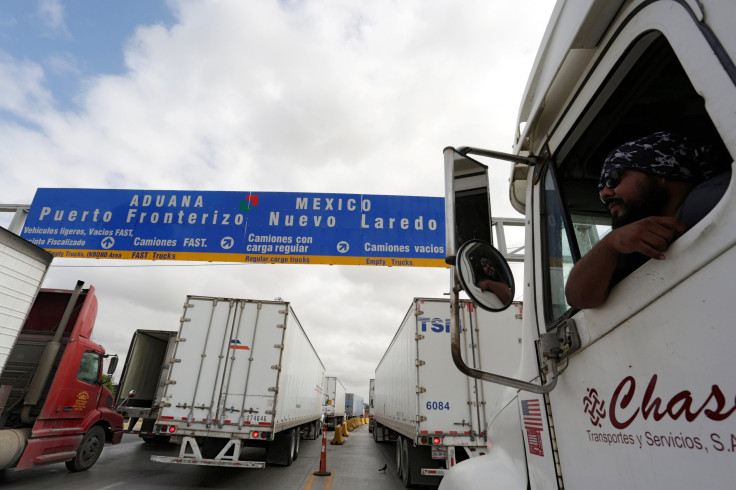What Is NAFTA? Facts About Controversial Deal That Drove Economic Growth And 600,000 Job Losses Over 2 Decades

After much speculations whether or not President Donald Trump will scrap the North American Free Trade Agreement (NAFTA), the White House released a statement Wednesday evening saying Trump will not pull out the U.S. from the trade deal. Trump spoke to Canadian Prime Minister Justin Trudeau and Mexican President Enrique Pena Nieto over a phone call and arrived at the decision.
However, the statement added: “the leaders agreed to proceed swiftly, according to their required internal procedures, to enable the renegotiation of the NAFTA deal to the benefit of all three countries”.
Read: New Gallup Poll Shows People Are Evenly Divided In Their View Of NAFTA
Pres. Trump agrees 'not to terminate NAFTA.' "It is my privilege to bring NAFTA up to date through renegotiation." https://t.co/o8WeguDMPp pic.twitter.com/zrhegzbS8h
— ABC News (@ABC) April 27, 2017
Trump was considering to pass an executive order, which would have withdrawn the U.S. from the NAFTA trade deal, two White House officials had told Politico.
While campaigning last year, Trump continuously vowed to force Canada and Mexico to renegotiate the NAFTA trade agreement with the U.S., if elected. His vows were part of an effort to protect and restore American jobs, Reuters had reported.
NAFTA was negotiated by former President George HW Bush and enacted by his successor, Bill Clinton in 1994. It created one of the world's largest free trade zones and laid the foundations for strong economic growth in the U.S., Canada and Mexico, according to its website.
The U.S. economy has undoubtedly benefited from the agreement, economists say. Since the time NAFTA came into effect, merchandise trade among the three members had more than tripled, reaching US$946.1 billion in 2008. Over that period, Canada-U.S. trade has nearly tripled, while trade between Mexico and the U.S. has more than quadrupled.
However, apart from the trade growth among the three countries, critics argue, NAFTA has caused job losses and wage stagnation in the U.S. The U.S.-Mexico trade balance swung from a $1.7 billion U.S. surplus in 1993 to a $54 billion deficit by 2014. According to economists, the deal has also caused job losses of up to 600,000 over two decades, according to Council on Foreign Relations.
"The most affected workers were college dropouts working in industries that depended heavily on tariff protections in place prior to NAFTA. These workers saw wage growth drop by as much as 17 percentage points relative to wage growth in unaffected industries," economist John McLaren said in an interview with UVA Today last year.
© Copyright IBTimes 2024. All rights reserved.






















